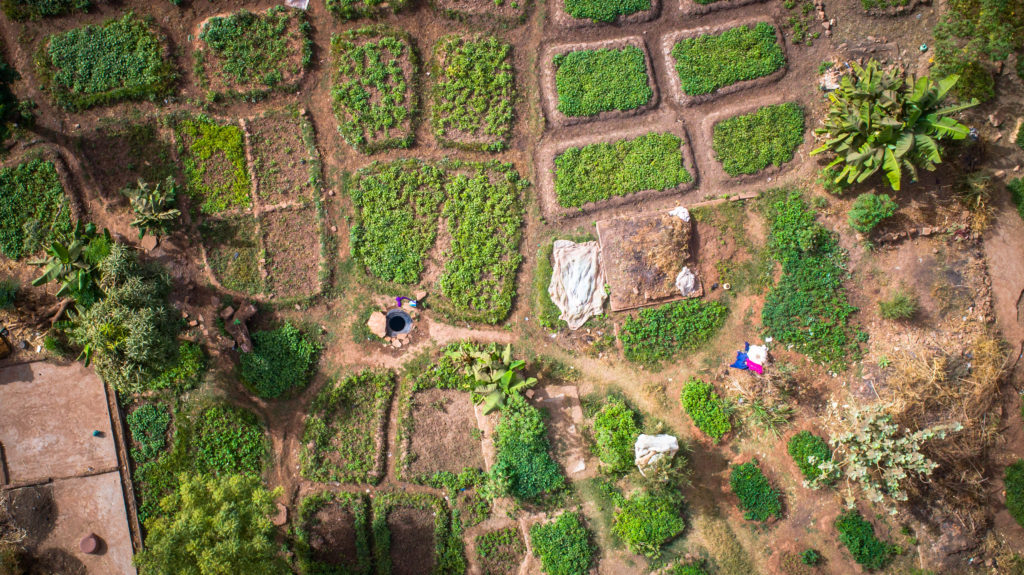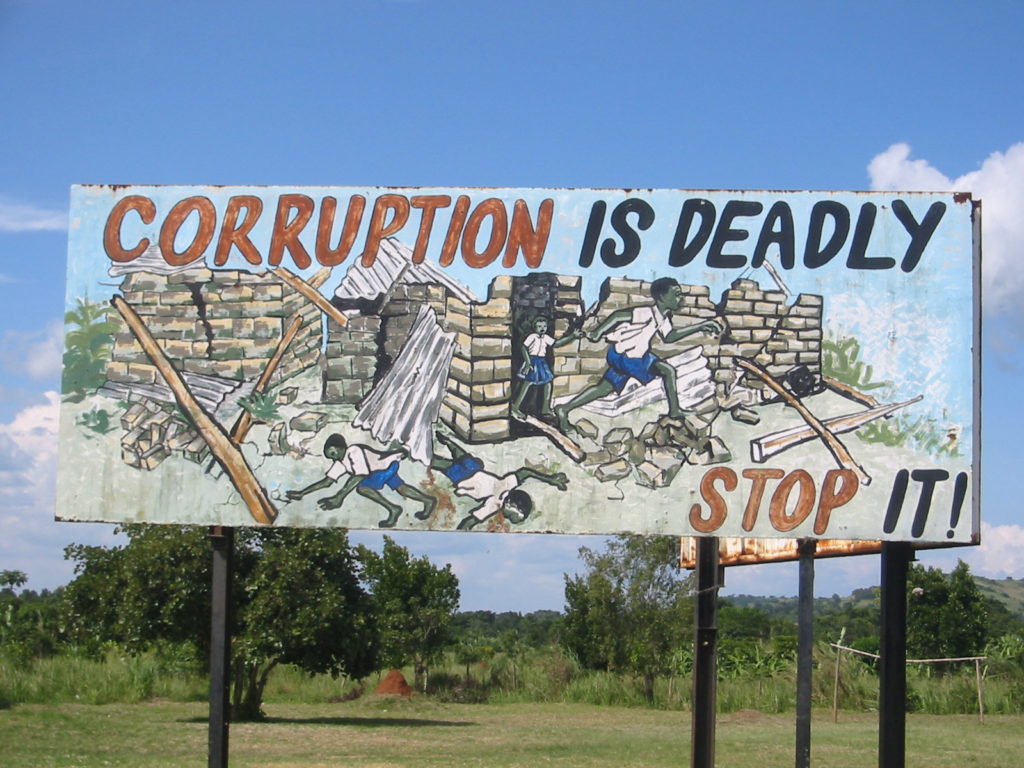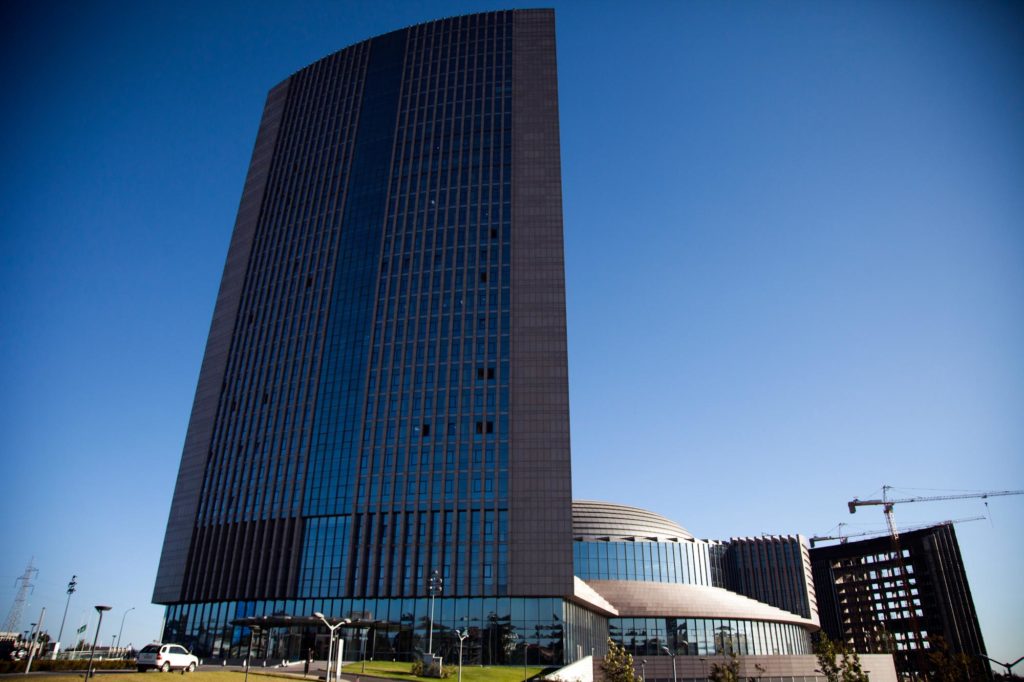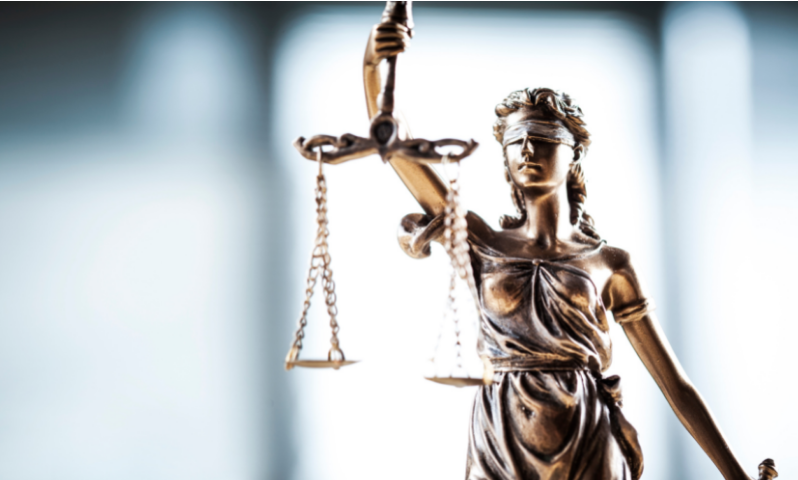The higher education sector in Africa is blighted by several varieties of corruption, relating to grading, access to education, and involving various forms of influence ranging from gift-giving to sextortion. In this blog post, Dr Cristiano D’Orsi, Senior Research Fellow and Lecturer at the South African Research Chair in International Law (SARCIL) at the University of Johannesburg, examines whether these practices have roots in traditional culture, and also highlights some innovative actions that are being taken around the continent.
One of the most controversial aspects of the world higher education systems is the role that ‘merit’ plays and whether (and how much) it is sacrificed to ‘corruption’. First, we have to agree whether there are African concepts of merit and corruption that are shared by the 54 sovereign African countries and applicable to higher education. The 2003 AU Convention on Preventing and Combating Corruption represents a significant step in the efforts to develop continental standards to counteract the systemic corruption across Africa. The acts listed at Article 4, at large, can be also applicable to higher education while Article 1 defines a public official. Similar definitions are also provided by the 2003 UN Convention against Corruption (UNCAC) that has been widely ratified in Africa, with the exception of Eritrea and Somalia. However, neither of these two instruments explicitly targets higher education in any of its articles.
Difficulties in defining ‘merit’
Merit is not easy to define. UNCAC mentions it just once (Article 7 on Public Sector) without any further explanation while the AU Convention remains silent on it. Hence, the applicability of the principle of merit has historically been an argumentative topic. Central to the debate – between liberals (proponents) and egalitarians (critics) of meritocracy – is the notion of ‘deservingness’ explaining that individuals should obtain only what they deserve. Against this backdrop, deservingness, or reward, is dependent on one or more among contribution, effort, and compensation; this last requiring proportionality of reward and cost. Additionally, African higher education institutions and disciplines are not neutral, emerging as structures and cultures over the years. It is easy to agree with Transparency International when it says that corruption is endemic in most universities in Africa. However, the acts representing corruption are not always accepted as such in Africa and can be justified in various capacities.
Role of Ubuntu
Ubuntu is an ancient African moral theory that has received the attentions of myriads of scholars; both African and non-African and may play an important role. Accordingly, Broodryk, defines Ubuntu as “a comprehensive, ancient worldview which pursues primary values of intense humanness, caring, sharing and compassion, and associated values, ensuring a happy and quality community life in a family spirit or atmosphere” (Broodryk, 2005: 4 ).
This definition shows that Ubuntu advocates for the common good of the public. However, the common good in question here is different from the western notion of common good, which emphasizes freedom and personal autonomy. It is a notion of common good that sees human life as communalistic and inter-connected. In this sense, no individual within the ethic of Ubuntu discriminates, disrespects or acts dishonestly while discharging public service. Instead, civil servants show respect and honesty.
Overall, Ubuntu considers human action by the level at which it affects the life of the public. Ubuntu advocates for human behaviour which bring harmonious living, and to that extent, produces happiness to the public (Shutte, 2009: 97). This by extension means that individuals are treated equally. Nepotism on the other hand, is the act of favouring a member of one’s family in the distribution of resources at the expense of others. Going by this, there is a need to examine whether it is best to practice nepotism or whether, within the Ubuntu ethical system, the best result would be produced if civil servants favour their family members in the distribution of government resources at the expense of others.
Practically, the word ‘nepotism’ has already implicated itself and therefore falls short of Ubuntu. Ubuntu demands the promotion of the happiness of everyone in the community. Where family members are preferred against others, the happiness produced will be limited compared to the pain it will produce in the community since the community is always bigger than a particular family. Application of Ubuntu in this regard will throw things open to the best qualified, so that it will be clear from all indications that there were no traces of bias. It is with this attitude that the community can begin to experience harmonious living. What this shows is that Ubuntu and nepotism cannot be proper partners. They contradict one another.
Contribution of the extended family system to nepotism
The socio-cultural structure in Africa has its origin in tribal and kinship relations. These tribal and extended family ties constitute the basic institutions, which shape the individual’s social values and norms. These values and norms encourage nepotism in African societies, encouraging individuals to fulfil their responsibilities towards their family.
Tribal systems require strong commitment from individuals towards their tribes, which allows nepotism if it concerns relatives. This observation confirms the fact that there is an existential link between the extended family system and nepotism. The fact that this practice is common in Africa goes a long way to show that the kinship bond is strong in comparison to other parts of the world. Does this mean that traditional African society promoting such practice is immoral? This may be how it appears but to draw such a conclusion would amount to imposing modern systems of moral evaluation on a society where there is no basis for such imposition.
Traditional African societies in which the language of nepotism is alien see nothing wrong with a civil servant helping his relatives, friends and in-laws when he is in a position to do so. The reason for this is clear: the peoples’ culture requires them to care for relatives in need and to be their brothers’ keepers. No traditional African would be ashamed to be caught helping a relative, a friend or an in-law. Should the person be asked to explain his preference for his relatives over others in matters of public employment the reply would be: “it is our culture, is there anything wrong in giving job to my relatives or to my in-laws?”
It is this traditional African interpretation of the extended family system that is imported wholesale into modern society without taking cognisance of the differences between both societies. Thus, those who are involved in the misconduct of nepotism, their victim (which is the common good) and those who benefit from this misconduct, may see nothing wrong with it or try to downplay its gravity because they think that it is a part of he society. Consequently, instead of coming out to oppose nepotism, what most Africans do is to wait for their turn; when their ally occupies the same position and favours them in the same proportion.
Gift-giving
The idea that some African cultural practices and values have elements favourable for the development and spread of corruption is real. This occurs in the African customary exchanges of gifts. In African culture “there are conventions which demand or expect that a person shows appreciation for favours done to him” (Okeke, 2002:131). Gift-giving in the contemporary period is no longer for appreciation alone, but also for expectation due to the ulterior motives that some individuals now give this practice.
Sometimes gift-giving seems to be the same thing as bribery, but there is a thin line separating the two. Gift-giving and bribery are similar in some ways, as both contribute to corruption. In both cases, something is given from one person to the other to make the person take a requested action. This is to say, there is a giver and a receiver in both gift-giving and bribery, which may come in the form of cash or kind. However, one thing that is common in both bribery and gift-giving is, if disappointment comes along the line, neither party involved will have the courage to sue the other in a law court for a refund.
In African traditional society, the rulers were sometimes obliged to give gifts to the people. This was done as a sign of acknowledgement to the community for their support to the ruler. Gift-giving, originally an innocent practice in traditional African society, has become in modern times the ember stoking corruption. In order words, in this modern period, gift-giving encourages corruption, as givers do so with ulterior motives, unlike in the traditional society when people gave for gratitude.
It is unfair to use corruption as a parameter for getting what one is qualified to have. People give because they do not have an alternative, otherwise they may not get what they want. They also demand because they give, and corruption becomes a vicious circle at the expense of the society. In sum, gift-giving in the modern African society, especially in the public sector, encourages corruption because of the ulterior motives for giving in a situation of scarce resources.
“Tell the truth” Project
“Tell the Truth”, a pilot project in the universities of several African countries (South Africa included), is trying to overcome the culture of silence on issues related to bribery, abuse of resources, and sex-for-grades. All stakeholders on campus – students, professors, and administrative staff – can text a free short code through mobile phones and then be called back by an operator who gathers details of the problem.
Subsequently, university administration and student representatives discuss the information periodically, and both sides agree on the way forward. On certain issues, whistleblowers have their identities protected to avoid retaliation. Universities’ political and corporate liaisons may create conflicts of interest and undermine their autonomy, academic freedom, and impartiality. In this framework, several African countries have acted more effectively than other countries, because they have a clearer vision of the phenomenon and make more efforts to curb it.
Domestic and regional efforts to thwart corruption
Rwanda adopted an anti-corruption policy in June 2012 and, previously, the Law no 23/2003 Related to the Punishment of Corruption and Related Offences. The Prevention and Combatting of Corrupt Activities Act is the key statute on corruption in South Africa. It provides for the general offence of corruption as well as specific offences. It also provides for investigative measures, as well as preventative measures in the fight against corruption. In Southern Africa, there is also the 2001 SADC Protocol against Corruption providing for the prevention, detection, and punishment of corruption as well as for cooperation between states. It covers corruption in both the public and private sectors. The Protocol recognises that demonstrable political will and leadership are essential in the fight against corruption. It affirms the need to garner public support for initiatives to combat corruption. Therefore, we should reflect on the efficacy of the corresponding legal instruments in fighting academic corruption in higher education in Africa, whether and in what measure they are implemented by the African stakeholders, not only individual countries but also sub-regional and regional organisations. For example, the AU regularly organises “anti-corruption dialogues” that, among their goals, discuss how enhance transparency and fight corruption through efficient judicial systems.
Conclusion
Amid efforts to reduce corruption in higher education in Africa, anti-corruption experts are urging improvements in the governance and leadership of public universities. According to a former coordinator of the World Bank’s tertiary education programme, African governments should establish a regulatory framework for tertiary education systems, with adequate provisions to punish corrupt behaviour at all levels. He suggests that university senates, independent financial review boards and national university accreditation boards should provide leadership in fighting corruption.
In order to operate in a more transparent manner, African universities are encouraged to ensure that funds generated through corruption are not donated or invested in higher education. There have been cases in several countries (Libya and Equatorial Guinea) where money embezzled from public institutions had been channelled to universities.
Taking into account that corruption is endemic in most universities in Africa, experts urge a crackdown on academic fraud that ranges from soft marking, copying from other students and cheating during examinations to impersonation. Universities should also monitor and punish cases of falsifying academic records, paying for grades with gifts, money and sexual favours, terrorising examiners and assaulting invigilators. Taken together, those outcomes undermine educational opportunities for students and produce graduates who are less equipped to thrive in future careers.












Recent Comments